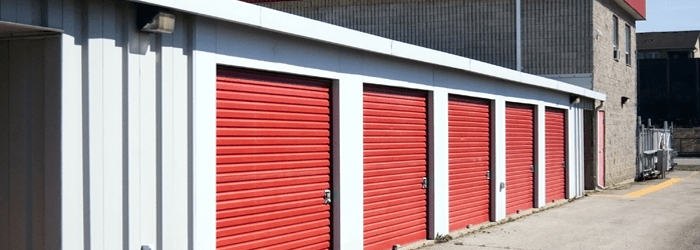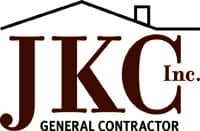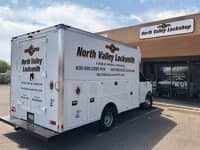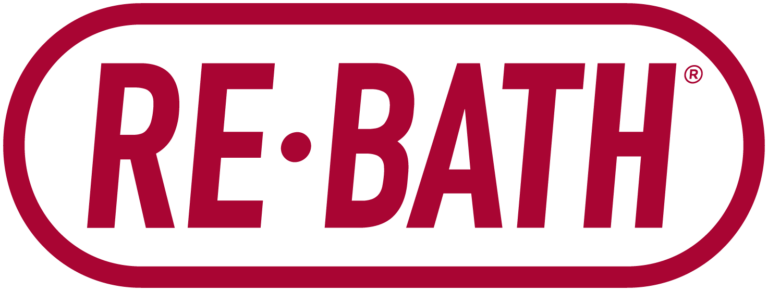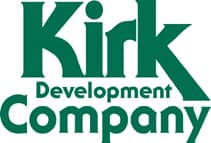So, it’s official, you ran out of room in the garage. Or maybe you are moving and downsizing, staging your home for resale, or better yet, you are remodeling and need to store some things while the work is being done. Storing items off-site is quite common, as evidenced by the proliferation of mini-storage companies.
Off-site storage means storing your household items, large toys such as a boat, or fifth wheel, in a location that is not your home. The reasons for wanting to store possessions are as varied as the possessions themselves.
Let’s look at some steps you might want to consider before moving items to storage.
Deciding What to Store
 As you look at your storage spaces, you need to decide what items you want to store. Make a thorough assessment of those items you are considering for storage. Think about how often you will need to access that item. An example might be seasonal decorations or a generator you rarely use.
As you look at your storage spaces, you need to decide what items you want to store. Make a thorough assessment of those items you are considering for storage. Think about how often you will need to access that item. An example might be seasonal decorations or a generator you rarely use.- Make a master list of all the items you are storing, including how you will store them. Are they in a plastic tote, cardboard box, or tool chest? You will find this information invaluable when you go looking for something. The list will help you decide the amount of space you will need for storage and the type of space you will need to look for.
Choosing the Type of Facility
This decision is very important. Let’s start with the location.
- You will want to access your things from time to time, and probably will not want to travel far to get to them. Find out what is available in your area.
- There are some basic differences in the types of storage facilities available. What type of storage do you need? Do you want to store things indoors? Does the climate need to be controlled? Will outdoor storage do the trick? Do you need ground-level access, or can you go up a flight or two?
- The items you have chosen to store will help you decide between these options. Are they heavy, not easy to move? Then a ground-level solution is probably in order. If they are lightweight, and you don’t mind carrying them, second-level storage, even a walk-up, might work for you. However, a boat or fifth wheel will probably not have a building around them (though covered storage is available in some areas), ground level, outdoor, is the likely choice.
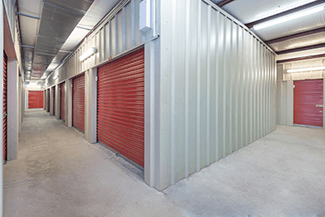
- Consider how vulnerable the items to be stored are. Photographs, artwork, and paper items will be stored better in a climate-controlled environment. Golf clubs won’t need the same protection. Usually located inside a building, this option keeps interior temperatures and humidity at the levels you would find in your home.
- Single-level, metal buildings on a lot offer a simple level of storage and usually easy access for your vehicle. Typically, these facilities have a large garage door, affording you the ease of movement in and out of the storage unit. Smaller units (some the size of a walk-in closet) may have a regular door. These can be multiple floors with upper storage units typically smaller than ground units. Is access to the upper floors by an elevator, lift, or short ramp?
- Climate-controlled storage units are typically inside a building envelope. This makes overall climate control economically effective. These units are often multi-stories. Check for upper-floor access and access for large storage items.
Asking the Right Questions
These are some questions to ask before signing the storage unit contract.
- What are the various sizes of the storage units? With your list in hand, you probably have an idea of the size unit you will need. Go look at them. You may discover you need something smaller or larger than your original assessment.
- Cost? Find out how much the different size spaces cost. Knowing that can help you focus your budget.
- What are the access hours? Some facilities restrict access to daytime hours only. Depending on when you need to access your items, you may want to make sure those hours of operation are convenient for you.
- Does the landlord have insurance? What kind of insurance will you need? Keeping your items safe from disaster is only part of the equation. Infestation by insects, water damage, or damage due to a failure in a climate-controlled unit needs to be considered. Addressing these issues before you need them is the key to your peace of mind.
- We mentioned the proximity to parking earlier. This is the time to ask again and be sure where you can and cannot park, load, or unload stored items.
Some Helpful Tips
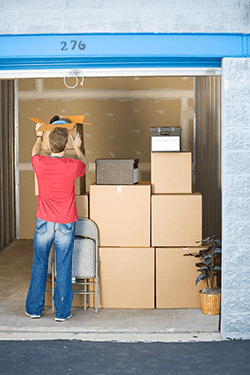 These pointers will help make your storage unit function well and be accessible.
These pointers will help make your storage unit function well and be accessible.
- Label your boxes. A list of contents will help prevent hours of random searching. You can even number each box and transfer that information to your master list for easier recovery of a needed item.
- Arrange boxes and items to create a corridor in the storage space. When you do this, make sure the labels face the corridor for easy reading.
- Clean items before you store them. Consider covering large items such as furniture to mitigate dust.
- Keep a flashlight at the entrance of the unit. Even during daylight hours, these units can be dark inside, and labels are hard to read.
- Make sure the boxes you are storing are sturdy. Depending on how long you plan to store the items, you will probably need to move them several times. Flimsy boxes won’t hold up.
Storing items off-site is economical and a great way to free up space in your home for other uses. Once freed up, the garage, basement, and closets can have new uses without building a new space.
Before you spend money on a monthly storage fee or if you feel the task is too daunting, contact Get Organized with Bridges. Bridges Connor is a master organizer and can help you downsize so that you are not paying extra to store things you only need occasionally.
Consider keeping your belongings on your property with a built-to-to-suit shed from Urban Shed Concepts.
Find extra storage in your home, garage, and attic with ideas from our articles:
- 10 Ways to Improve Storage Space in Your Home
- How Can I Find Extra Storage Space in My House?
- Outdoor Storage Options
- Can I Convert My Attic To Usable Storage Space?
If you have any storage tips for our readers and listeners, we would love for you to share them with us so we can pass them on!
###
PODCAST
We talk with South Mountain Community College about their ACE program for high school students to consider a career and get certified in the building science trades. Demand with great pay is available now and classes learning a trade/skill for DIY-ers of any age is available too! Our Weekly To Do on off site storage facilities. Listener follow up about restoration after a home disaster and more!
Podcast Archive With Expanded Content and Resources
PHOTO CREDIT
- Shutterstock

